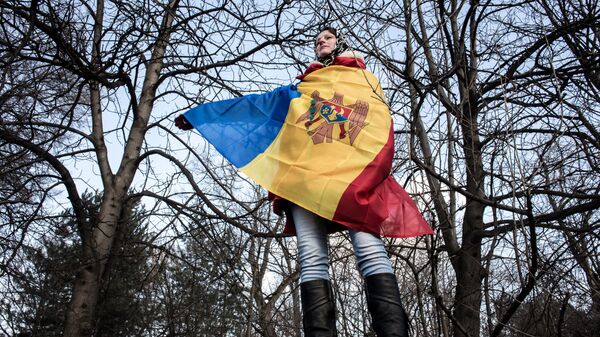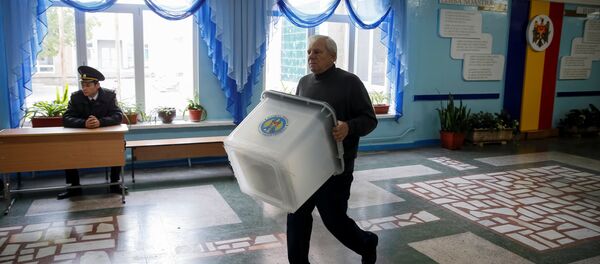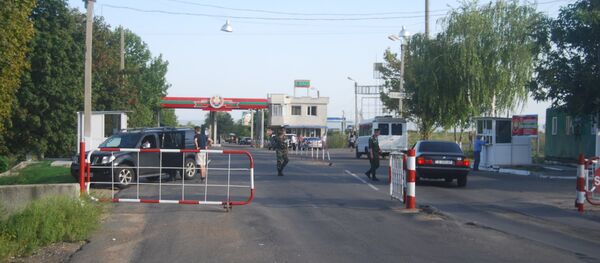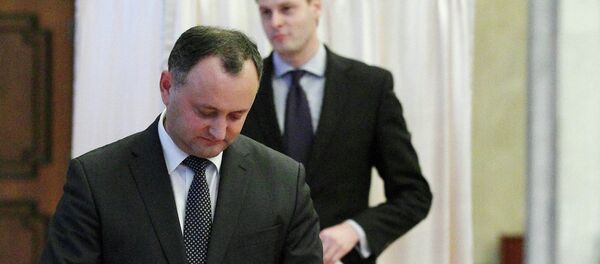The first round of the vote took place October 30. Moldova has been stuck in a political crisis since early 2015, when it was discovered that over $1 billion, equivalent to 15% of the country's GDP, had disappeared from three national banks. Oligarchs associated with the country's pro-European government have been accused of involvement in the heist, leading to months of street protests.
This year's elections are doubly significant since they are the first direct presidential elections held in Moldova since 1996. Beginning in 2000, the president had been selected by parliament. However, this past spring, the country's Constitutional Court ruled that the president should be elected by popular vote.
And something even more important may be at stake, including the fate of the 3.5 million-person republic itself. Facing the rise of Romanian-financed forces looking to annex Moldova into Romania, the current election cycle may help determine whether Moldova remains an independent country, or is absorbed by its western neighbor. Since the collapse of the Soviet Union, and especially after contentious parliamentary elections in 2014, Bucharest has been actively financing and otherwise promoting Moldova's total linguistic and cultural integration with Romania via television and radio, the press, student exchange and direct financial aid.
Dodon and the Socialists have repeatedly warned against 'playing with the fire' of national sentiment, stressing that Moldova has its own language and history, and that its annexation by Romania would lead to civil war. The politician called Bucharest's policy in the region "a threat to Moldova's national security."
For Moscow too, the stakes are high in Sunday's vote. Dodon has promised rapprochement with Russia, including improved political and economic ties. In spite of the country's political drift toward the EU and Romania, its economic dependence on Russia remains significant, with up to a quarter of the country's GDP estimated to be based on remittances from Moldovans living and working in Russia.
Moldova has a lower GDP per capita than any other country in Europe aside from civil war-scarred neighboring Ukraine, according to World Bank statistics. Its social and political crisis has been compounded by ongoing economic woes, and here too the presidential race is playing a role.
The Moldova-EU Association Agreement signed in June 2014, was expected to improve the country's prospects. However, it only worsened the situation, with economic growth flat-lining in 2015 to negative 0.5%, compared with 9.4% growth a year earlier. In the same period, inflation tripled to 13.6%, with the country's currency, the leu, dropping over 20% in value against the dollar in 2015. With the signing of the Association Agreement, exports of Moldovan products to Russia dropped by 40%, with EU markets not only failing to absorb the surplus, but also suffering a 10% decline. Dodon has vowed to scrap the EU deal in favor of a bilateral deal with Russia.
According to political scientist Georgi Filimonov, the significance of the presidential vote in the parliamentary republic lies primarily in the authority of the office to approve early parliamentary elections, something the current government has repeatedly refused to do. Lawmakers from the parliamentary opposition, including the Socialists, Communists and Liberal Democrats, have repeatedly attempted a vote of no-confidence against the government, most recently in September.
For his part, Dodon has said that he is confident that he will win in Sunday's run-off. Last week, Sputnik Moldova reported that the candidate had received the endorsement of populist left Euroscepticist party Partidul Nostru ('Our Party'), led by Renato Usatii. Usatii stressed that he could not support Sandu, who he said was "Washington's project." In the first round of the presidential vote, Partidul Nostru's candidate received 6% of the vote, giving them third place. Usatii's endorsement effectively means that Dodon should have no problem clinching victory, if it is not taken from him via electoral manipulation or foreign interference.





